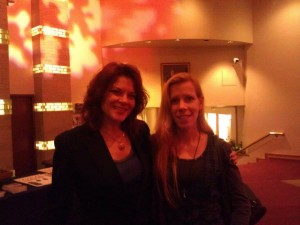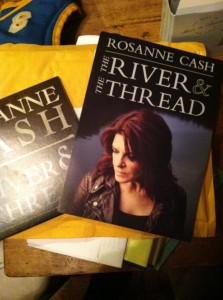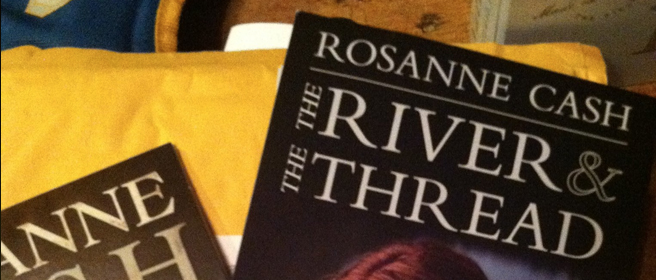Before I share my thoughts on Rosanne Cash’s new album, The River & The Thread, let’s go ahead and address the metaphorical elephant in the room. Yes, I am referring to the “clad in black, full of charm, iconic voice” known to all generations as Johnny Cash. Because yes, he is Rosanne Cash’s father; however his black coattails have never carried her career. To me, the fact that they are related is almost an aside when discussing her music. An interesting association, and certainly it enabled her to gather an insider’s perspective of the industry, but this is not what has made her an Americana music legend.

Now it’s quite possible Roseanne Cash will object to that title, but it is one she has earned, not one given through patriarchal heritage. I’m sure she considers herself just another singer/songwriter. I’m certain she would cite the mundane portions of her life and point out the labor-intensive aspects of creating the brilliant and timeless songs for which she is known. Certainly, if you follow her on Twitter, then you know exactly how down to earth and genuine she really is. Still, her wealth of phenomenal music, writing and performances have made her into a legend, whether she likes it or not.

Rosanne’s newest album, 2014’s The River & The Thread, is a wonderful example of how hard she endeavors on all the nuances of a song. Her absolute adoration for music seems to drive her attention to detail, and that is what gives each offering its own power. That attention is apparent in every thread of this album. Her deeply engaging lyrics are surrounded by melodies so unique and precise that they were instantly caught in my brain. That being said, there isn’t a song which seems solely focused on the lyrics or the music. Each layer is just as important as another in her work and the end result causes me to fall into the stories she’s created.
Although she brings variety to the topics and perspectives throughout the album, I felt a deeply personal, perhaps autobiographical pull was at play—almost as if this were an audio companion to her critically acclaimed memoir, Composed. Not that the album is her autobiography, because the memoir isn’t just about Rosanne’s life either, it also reflected deeply on the lives of the people in her world. Along that same vein, the stories told in The River & The Thread seem to capture moments and memories which may not be Rosanne’s, but which are shaded and told through her eyes.
The opening track was an instant favorite for me. She was somehow able to pay homage to Creedence Clearwater Revival and Bobbie Gentry simultaneously, while keeping it distinctly her own in the same breath. This is something that has always fascinated me about Rosanne Cash and other artists of her caliber. She is seemingly effortless in pulling the threads of what she admires in other singers, songwriters and musicians and is able to weave it into her work so completely that it becomes a small tribute within a song. Throughout the album I noticed moments I could attribute to her being inspired by John Hiatt, Mary Chapin Carpenter and, of course, Johnny Cash and June Carter.

As I listened and pondered whether or not Rosanne had been truly influenced by those performers, I reached the final track on the album, “Money Road.” I was surprised to hear the Tallahatchie Bridge mentioned in the first line. If you are a weird audiophile like I am, or if you just so happen to know a wide variety of music, then you may recognize that particular landmark. The Tallahatchie Bridge is the infamous jumping point of Billy Jo McAllister in Bobbie Gentry’s fatal ballad, “Ode to Billy Joe.” Whether “Money Road” is connected to Gentry’s song, I have no idea. The tantalizing ambiguity of Rosanne’s lyrics is part of what makes her songs so appealing to her audience. It is also, in my opinion, one of the facets that make them so enduring. I have no doubt that the music Rosanne Cash has created in The River & The Thread will be savored and appreciated on many levels for decades to come.
….Updated info….
I did have the chance to ask Rosanne Cash about the reference to the Tallahatchie Bridge in her song, “Money Road.” While the lyrics bear no reference to this landmark, it is where they shot the cover art for The River & The Thread.
